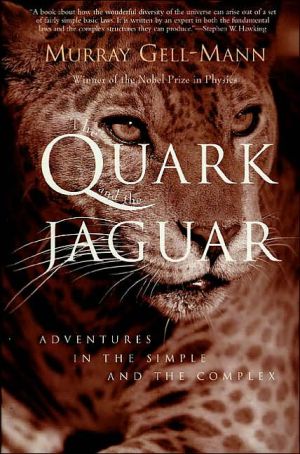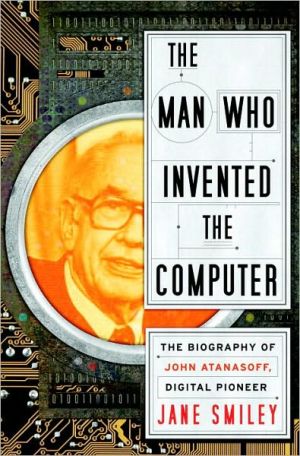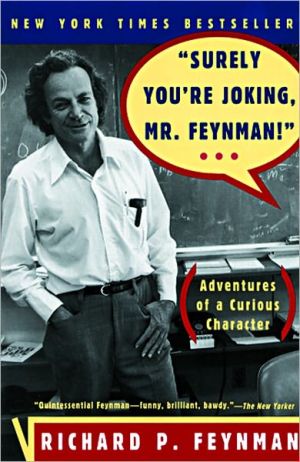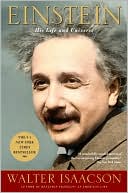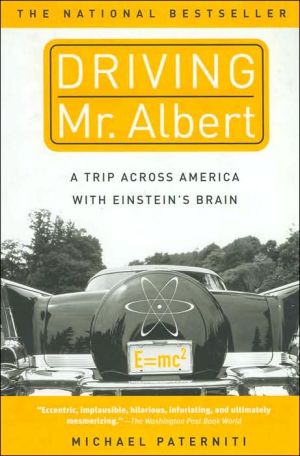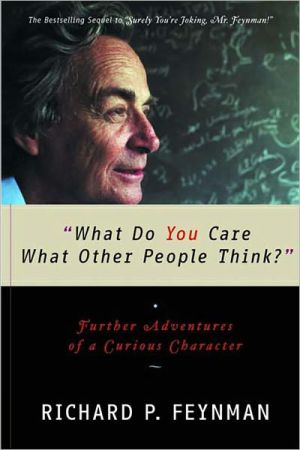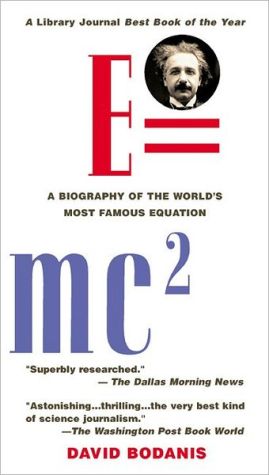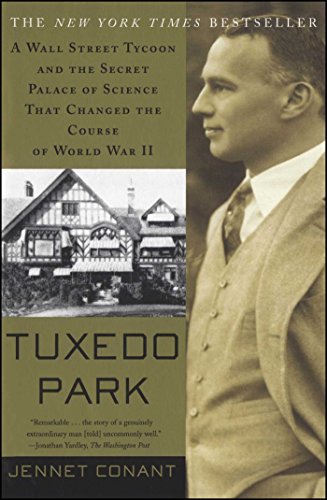Quark and the Jaguar: Adventures in the Simple and the Complex
From one of the architects of the new science of simplicity and complexity comes an explanation of the connections between nature at its most basic level and natural selection, archaeology, linguistics, child development, computers, and other complex adaptive systems. Nobel laureate Murray Gell-Mann offers a uniquely personal and unifying vision of the relationship between the fundamental laws of physics and the complexity and diversity of the natural world.\ \ \ What...
Search in google:
From one of the architects of the new science of simplicity and complexity comes a highly personal, unifying vision of the natural world. As a theoretical physicist, Murray Gell-Mann has explored nature at its most fundamental level. His achievements include the 1969 Nobel Prize for work leading up to his discovery of the quark—the basic building block of all atomic nuclei throughout the universe. But Gell-Mann is a man of many intellectual passions, with lifelong interests in fields that seek to understand existence at its most complex: natural history, biological evolution, the history of language, and the study of creative thinking.These seemingly disparate pursuits come together in Gell-Mann's current work at The Santa Fe Institute, where scientists are investigating the similarities and differences among complex adaptive systems—systems that learn or evolve by utilizing acquired information. They include a child learning his or her native language, a strain of bacteria becoming resistant to an antibiotic, the scientific community testing new theories, an artist implementing a creative idea, a society developing new customs or superstitions, a computer learning to play chess, or the human race evolving ways of living in greater harmony with itself and with other inhabitants of the Earth.The Quark and the Jaguar is an engaging, elegantly written introduction to the life's work of one of this century's most accomplished and influential scientists. This is Gell-Mann's own story of finding the connections between the basic laws of physics and the complexity and diversity of the natural world. The simple: a quark inside an atom. The complex: a jaguar prowling its jungle territory in the night. Exploring the relationships between them becomes a series of exciting intellectual adventures. Publishers Weekly In this sweeping synthesis, Nobel Prize-winning physicist Gell-Mann ponders the universe's mix of simplicity and complexity, regularity and randomness, as he ranges from quarks (the fundamental subatomic particles which he discovered) to complex adaptive systems like bacteria developing resistance to antibiotics, mobile robots, jaguars, and people interacting with and learning from their environment. Along with often technical chapters on information theory, time, biological evolution and the workings of the subatomic zoo of particles, Gell-Mann devotes special attention to superstring theory, the first viable candidate in physicists' search for a grand unified theory encompassing all the elementary particles and forces. Stressing the urgent need to control population and to preserve biological and cultural diversity, he advocates a multidisciplinary research agenda geared toward a sustainable future for the human race and the biosphere. $50,000 ad/promo; author tour. (Apr.)
PrefaceixPart IThe Simple and the Complex1Prologue: An Encounter in the Jungle32Early Light113Information and Crude Complexity234Randomness435A Child Learning a Language516Bacteria Developing Drug Resistance637The Scientific Enterprise758The Power of Theory899What Is Fundamental?107Part IIThe Quantum Universe10Simplicity and Randomness in the Quantum Universe12311A Contemporary View of Quantum Mechanics: Quantum Mechanics and the Classical Approximation13512Quantum Mechanics and Flapdoodle16713Quarks and All That: The Standard Model17714Superstring Theory: Unification at Last?19915Time's Arrows: Forward and Backward Time215Part IIISelection and Fitness16Selection at Work in Biological Evolution and Elsewhere23517From Learning to Creative Thinking26118Superstition and Skepticism27519Adaptive and Maladaptive Schemata29120Machines That Learn or Simulate Learning307Part IVDiversity and Sustainability21Diversities Under Threat32922Transitions to a More Sustainable World34523Afterword367Index377
\ From the Publisher"An exhilarating voyage of learning. Not a sparrow takes wing, not an idea rises, not a quark quivers that does not inspire Murray Gell-Mann. He has made his life an adventuresome quest along the frontiers of knowledge."—Bill Moyers\ "A stimulating, provocative, and uncommon cut across compartments of human knowledge that are usually hermetically sealed. It is always a pleasure to see a first-class mind grappling with the greatest mysteries, and at the same time resisting mysticism."—Carl Sagan\ "A grand tour of one of the most powerful and richly structured adaptive systems of our time: the mind of Murray Gell-Mann. The tour is very much worth taking."—Science\ "A most important book."—The Washington Post\ "A book about how the wonderful diversity of the universe can arise out of a set of fairly simple basic laws. It is written by an expert in both the fundamental laws and the complex structures they can produce."—Stephen W. Hawking\ \ \ \ \ \ Publishers Weekly\ - Publisher's Weekly\ In this sweeping synthesis, Nobel Prize-winning physicist Gell-Mann ponders the universe's mix of simplicity and complexity, regularity and randomness, as he ranges from quarks (the fundamental subatomic particles which he discovered) to complex adaptive systems like bacteria developing resistance to antibiotics, mobile robots, jaguars, and people interacting with and learning from their environment. Along with often technical chapters on information theory, time, biological evolution and the workings of the subatomic zoo of particles, Gell-Mann devotes special attention to superstring theory, the first viable candidate in physicists' search for a grand unified theory encompassing all the elementary particles and forces. Stressing the urgent need to control population and to preserve biological and cultural diversity, he advocates a multidisciplinary research agenda geared toward a sustainable future for the human race and the biosphere. $50,000 ad/promo; author tour. (Apr.)\ \ \ Library JournalGell-Mann, a Nobel Prize-winning theoretical physicist and a pioneer in the science of complexity, here examines that important concept, focusing on complex adaptive systems. Such systems are capable of learning and are able to adapt or evolve successfully. The intricate processes used by a child to learn a language, for example, constitute a complex adaptive system, as do the processes used by bacteria to develop resistance to drugs. These systems provide a context or framework for a stimulating discussion of quantum mechanics and the unified theory. Gell-Mann also explores topics such as natural selection, species diversity, and the evolution of human culture in relation to complex adaptive systems. While the topics are technical in nature, Gell-Mann's presentation is clear and will be readily understood by scholars and informed lay readers. Recommended for academic and larger public libraries.-Donald G. Frank, Harvard Univ., Cambridge, Mass.\ \ \ \ \ BooknewsGell-Mann, winner of the Nobel Prize in physics for the discovery of the quark and one of the founders of the new science of complexity, tells his own story of finding the connections between the basic laws of complexity and diversity in the natural world. The book is divided into four parts: Gell-Mann's personal experiences, the laws of physics and fundamental particles, selection pressures operating in complex systems, and policy matters and advocacy. Written for the general reader. Annotation c. Book News, Inc., Portland, OR (booknews.com)\ \
